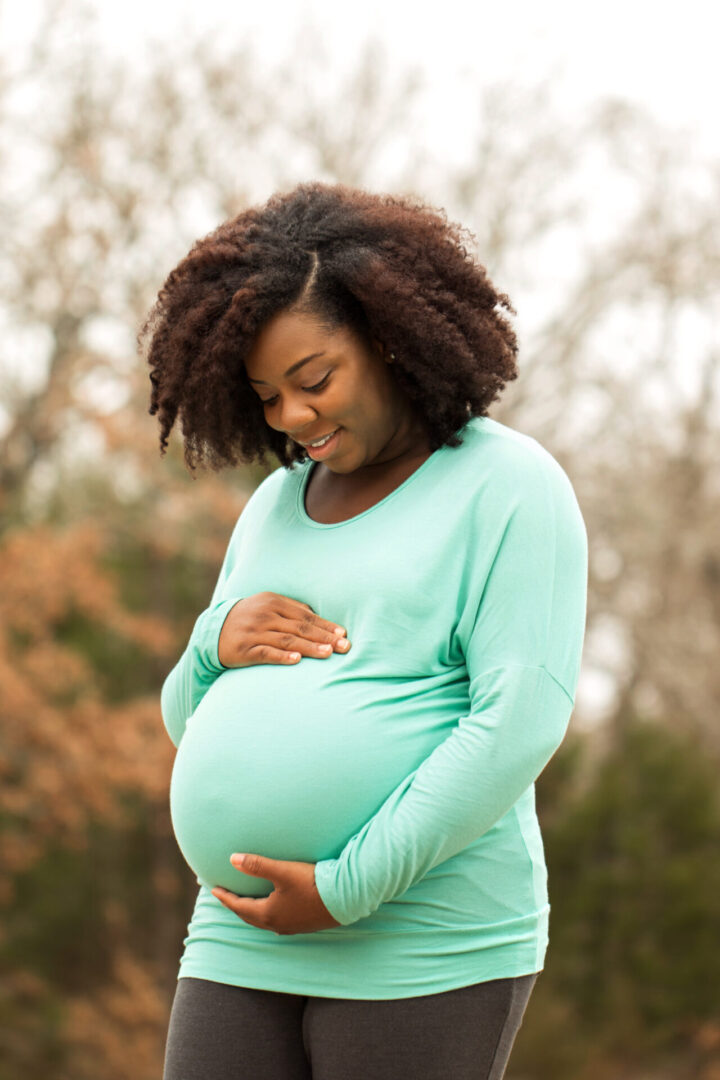From Fetal Development to Symptoms and Body Changes, Here's What You Can Expect During Pregnancy
Congratulations! Pregnancy is a life-changing experience and special journey that has many exciting and notable milestones along the way. You may be feeling many emotions right now and have a lot of questions—we're here to help you navigate your pregnancy milestones and developments so you feel comfortable and confident about the months ahead.
"Finding out your pregnant is a very special and emotional moment," said Rebecca Vanaman, a Motherhood & Family Advocate at Acenda. "Knowing what to expect during the next ten months can be helpful in soothing any uneasy emotions about the unknown and provide a guide to plan ahead for your growing family."
Read the guide below to learn about each trimester and the changes, developments, and milestones can expect to experience throughout your pregnancy.

First Trimester (Weeks 1-12)
If you think you could be pregnant, you should call your doctor or health care provider to schedule your first checkup. Typically, this will occur between 6-8 weeks gestation—the time between conception and birth. During this visit, you may have your very first ultrasound, but they're not always given at the first prenatal visit. If you do get an ultrasound, you may not see much, it might not look like a baby yet, and you won’t be able to feel them. This is still an exciting moment! You'll be able to hear your baby's strong heartbeat for the very first time. Often, your doctor will prescribe you a prenatal vitamin that has important nutrients and supplements for your growing baby and will schedule monthly checkups.
During the first trimester, you might feel nauseous or even experience some morning sickness and can expect to feel a wide range of emotions. It is an exciting time to begin thinking about what your baby might look like. By 2 months gestation, your baby’s growing brain will make their head almost as big as their body! At the end of the first trimester is typically when most women feel their morning sickness fade, however, some women experience this into their second and third trimesters.
Second Trimester (Weeks 13-26)
You can expect to have doctor appointments once or twice a month during the second trimester. At these doctor appointments, your doctor will take your weight and measure your belly to make sure the baby is healthy and growing.
Regular exercise like swimming or walking is good for you and your baby. You can start to feel the baby moving around 18 weeks. Some women feel their baby moving as early as 16 weeks, but if it is your first pregnancy you might feel these movements closer to 20 weeks. During the second trimester, reflexes like sucking and swallowing begin to work and by 18 weeks, your baby is starting to be able to hear you! This is a great time to start talking and reading to your baby regularly to help bond and support their brain development. By the end of the second trimester, your baby’s taste buds are developed and they are gaining more stability and control of their muscles.
Third Trimester (Weeks 27-40+)
During the third trimester, you can expect to have weekly doctor appointments starting around 36 weeks, where the doctor will check the baby’s growth and position. The baby should make its way to being head down in order to prepare for birth.
As birth gets closer, you may experience something called “nesting”. Nesting is the urge to prepare for the baby’s arrival. This might include cleaning your house, setting up the baby’s nursery, packing a hospital bag, or making arrangements for older siblings while you are in labor.

During the third trimester, it is common to experience “Braxton Hicks” contractions. These aren’t labor contractions, it’s just your body’s way of preparing for the real thing. You might also be feeling a range of emotions like nervousness for the birth or feeling excited to meet your new family member! These emotions are typical as you near closer to your due date. If you need someone to listen, we're here to help!
Acenda Cares for Moms
Our team of Motherhood & Family Advocates provide pregnancy and child development resources for new and expectant parents from prenatal care through kindergarten. We're here to help answer your questions and provide useful pregnancy and parenting support when you need it most. Best of all, our resources and support services are completely free for all families.